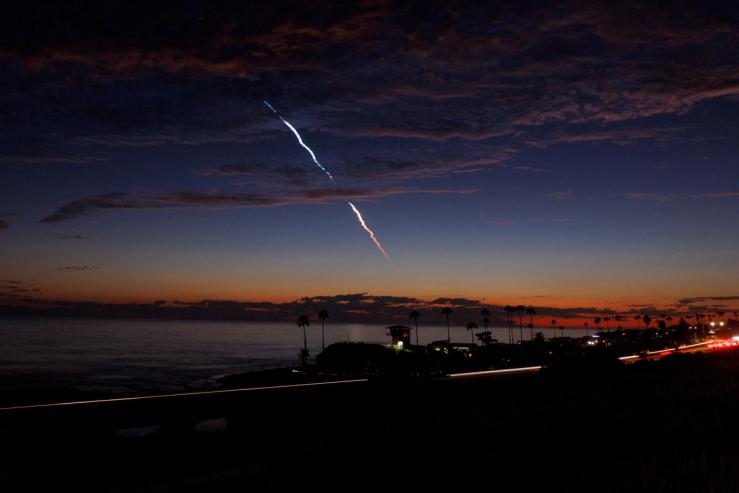
Semafor Signals
Blue Origin, SpaceX eye major launches as space industry gears up for bumper 2025

The News
Jeff Bezos’s Blue Origin is gearing up to launch its New Glenn rocket this week, marking the start of what many space industry analysts and insiders expect will prove a bumper year as Donald Trump returns to the White House.
Blue Origin is hoping to complete an orbital test that will see it land the rocket’s first stage on a drone ship in the Atlantic. Reusability has transformed the private space industry, with rival Elon Musk’s SpaceX firmly leading the pack on that front. That said, Blue Origin is catching up, The Economist noted.
What remains unclear is whether Musk’s unofficial position in the incoming Trump administration will benefit SpaceX to such a degree that it leaves no room for competition, or, as many analysts predict, the space industry as a whole will see a boost from Trump.
SIGNALS
Bezos’ Blue Origin has had a slow but steady lift-off
Jeff Bezos and Elon Musk have long vied for dominance over commercial space, with one clear leader: SpaceX launched the vast majority of everything that went to space last year and owns more than half of all satellites. Blue Origin, meanwhile, has lagged far behind. “Blue Origin’s approach was to say ‘We’ll hire the best in the business’,” one analyst told The Economist, whereas SpaceX “started from the assumption that the whole [aerospace] business was broken anyway,” he said. Blue Origin may speed up its timeline, however: The company hopes to complete 10 launches in 2025. If successful, the space industry will enter into “a new era” that “could chip away at Mr. Musk’s dominance,” The New York Times noted.
Musk’s influence could maximize efficiency — and disruption — for space industry
Donald Trump’s pro-space exploration stance in his first term and friendship with Elon Musk means analysts expect space companies to enjoy a “far friendlier regulatory environment” when Trump returns to office. Musk has long expressed disdain for the US Federal Aviation Association — which oversees rocket launches — and could recommend cutting regulations, in turn making it easier to launch. While some deregulation could increase efficiency across the industry, SpaceX’s dominant position could mean any benefits prove uneven in practice.
Existing space infrastructure may struggle with demand
The potential boom in private US space companies could be hindered by the lack of infrastructure to handle an increase in launches. Currently, US spaceports are already forming traffic jams, The Wall Street Journal reported. Just three sites — in Florida and California — can handle most rocket launches, and there were five times as many US launches in 2024 as there were in 2017. Having fewer facilities is “a risky strategy,” a former top FAA official told the outlet, as a single big weather event could put a spaceport out of service for months or years. Past attempts to build new launch sites have encountered significant obstacles: Inland spaceports are challenged by public safety scrutiny, while coastal sites often face local opposition due to noise disruption.

